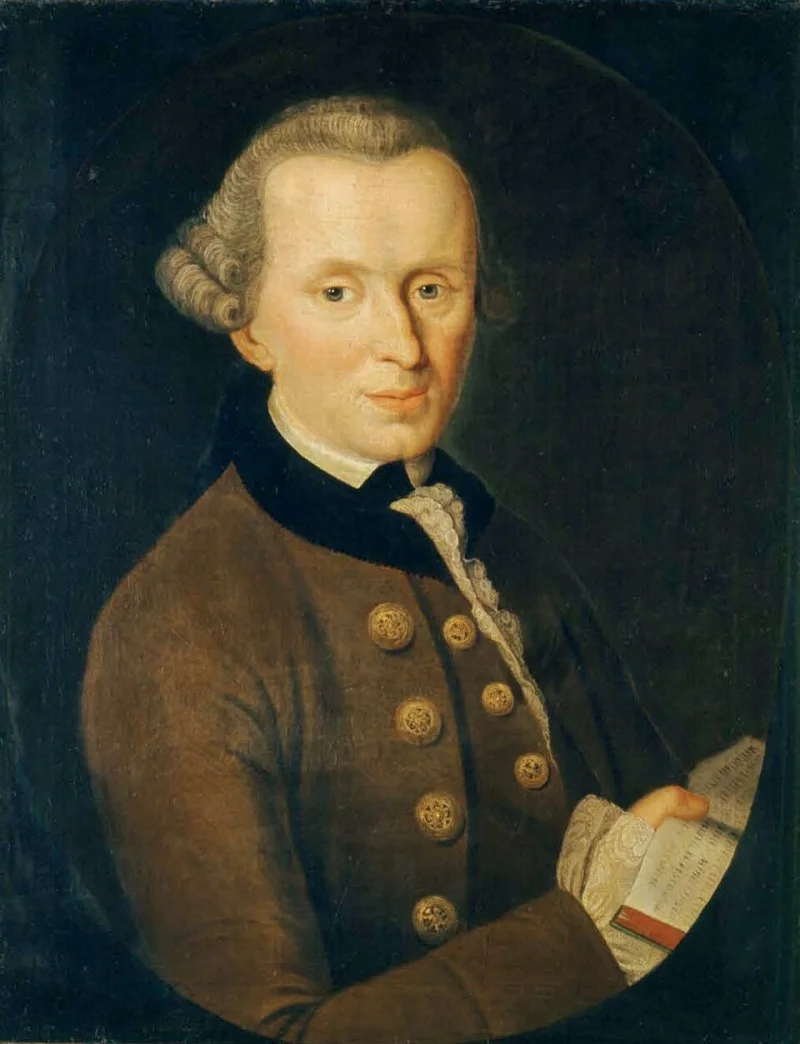Short Summary
Immanuel Kant was an influential German philosopher, renowned for his work in epistemology, ethics, and metaphysics. His critical philosophy, especially as expressed in the "Critique of Pure Reason," profoundly impacted modern Western thought and established him as a central figure in philosophy. Kant is famous for his theory of transcendental idealism and for developing deontological ethics, which emphasizes duty over consequence.
Early Life & Education
Born on April 22, 1724, in Königsberg, Prussia (now Kaliningrad, Russia), Immanuel Kant was the fourth of nine children in a modest family. His father was a saddler of modest means, and his mother was a devout Pietist, which imparted to him a strong religious and moral upbringing. Kant attended the Collegium Fridericianum, a Pietist school, where he received a rigorous education. In 1740, he enrolled at the University of Königsberg, where he studied philosophy, mathematics, and the natural sciences. Influenced by philosophers such as Leibniz and Wolff, Kant's early education set the foundation for his later critical works.
Career Highlights
After completing his education, Kant worked as a private tutor before securing a position at the University of Königsberg. In 1755, he earned his doctorate and began teaching as a lecturer. His early works focused on natural sciences and metaphysics. However, it was his publication of "Critique of Pure Reason" in 1781 that marked a turning point in his career, establishing him as a leading philosopher. Kant continued to develop his ideas through subsequent works, including "Critique of Practical Reason" and "Critique of Judgment," which further solidified his influence on Western thought.
Major Achievements
- Developed the theory of transcendental idealism, which proposes that our experience of reality is shaped by the mind's perceptual frameworks.
- Established deontological ethics, emphasizing duty and moral law over consequentialist ethics.
- Published "Critique of Pure Reason," a seminal work that challenged traditional metaphysics and epistemology.
- Influenced later philosophical movements, including German Idealism and existentialism.
Famous Quotes
- "Science is organized knowledge. Wisdom is organized life."
- "Act only according to that maxim whereby you can, at the same time, will that it should become a universal law."
Interesting Facts
- Kant was known for his highly disciplined lifestyle, adhering to a strict daily routine.
- He never traveled more than 10 miles from his hometown of Königsberg throughout his life.
- His "Critique of Pure Reason" was not initially successful and took several years to gain recognition.
Legacy / Influence
Kant's philosophy laid the groundwork for subsequent philosophical inquiry, influencing thinkers like Hegel, Schopenhauer, and Nietzsche. His ideas on ethics and epistemology continue to be central to philosophical debate. Kant's work also impacted fields beyond philosophy, including political theory and aesthetics, leaving a lasting legacy that endures in contemporary discussions.
FAQ
Q: Why is this person famous?
A: Immanuel Kant is famous for his critical philosophy, particularly his theories of transcendental idealism and deontological ethics, which have had a profound impact on modern Western thought.
Q: What is the "Critique of Pure Reason"?
A: It is a foundational philosophical work by Kant that examines the limitations and scope of human understanding and knowledge.
Q: How did Kant influence ethics?
A: Kant developed deontological ethics, which argue that actions are morally right based on their adherence to rules or duties rather than their consequences.










